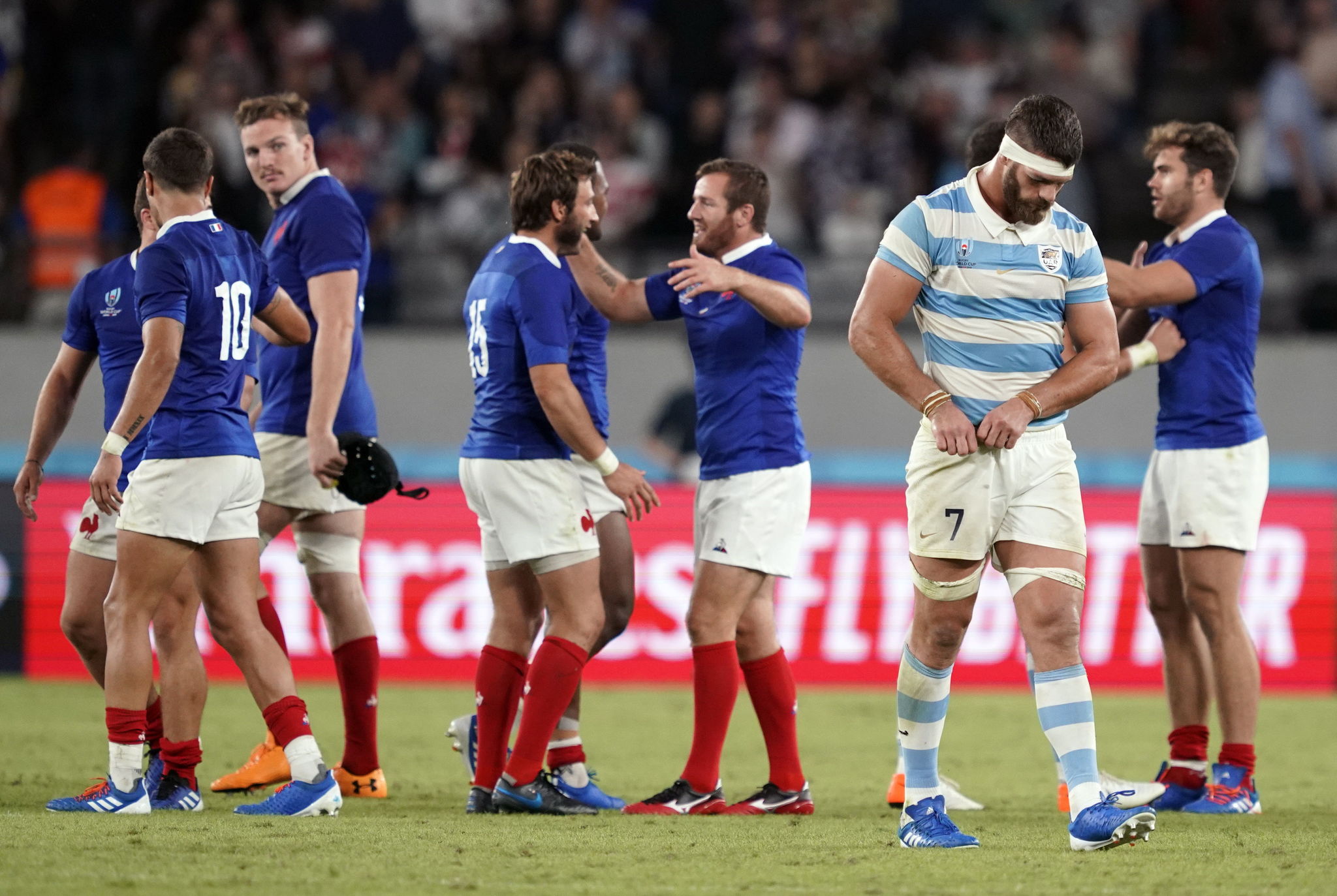- Opinion With fine disobedience
- Surprise: Japan surpasses its J-Day, with a record of Matsushima
Two matches every four days ... That minimum deadline, systematized for the first time in the Rugby World Cup, forces large teams to manage their roster and exposes the limits of smaller ones.
Unlike in the World Cup, the first phase of a Rugby World Cup looks like a Russian ride: irregular matches in number and quality. The reason? The competition format (four groups with five teams each) and the necessary physical and mental recovery time between the matches, estimated at least five days.
Faced with this equation, the International Rugby Federation (World Rugby) systematized - there were some exceptions in 2015 - a period of four days between two games once for each team, a "privilege" reserved for a long time to the minor teams .
Russia coach Lyn Jones did not go far to find the reasons for the defeat of his team against Samoa (34-9 ) on Tuesday night. Four days after falling to Japan (30-10) in the opening game.
Faced with the limits of his workforce, he made no change in his group of 23 or in his starting lineup. "We played the equivalent of a World Cup final on Friday. And we had to regroup, get motivated and concentrate again," he said.
Encerrona from Uruguay to Fiji
The Russian Bears endured forty minutes against the Samoans. They dominated the rest (6-5), before sinking and granting five of the six trials received in the second half.
Paradoxically, this systematization is supposed to put all teams on an equal footing, despite the fact that the great teams rely on their reserve of high level players. An example? The Fijians paid the dozen changes they made after their defeat against Australia (39-21) .
Four days later, without soul and without collective spirit, they were surprised by Uruguay (30-27) , seriously mortgaging their options to move to the quarterfinals, before facing Wales. The Fijians did not look for excuses. "We underestimate a very good team from Uruguay," said Captain Dominiko Waqaniburotu , one of the few players who chained the two matches.
France and the rotations
At this stage, the great selections contemplate. South Africa made 13 changes to the team to be measured in Namibia on Saturday . A way to anticipate the succession of matches against Italy (October 4) and Canada (October 8).
With ten days off since his victory over Argentina (23-21), before chaining two games in four days (October 2 against Tonga, October 6 against the United States), France seems to have anticipated the two nearby matches.
"Two teams are going to prepare to play both games in four days," explained coach Jean-Baptiste Elissalde, just after winning the Pumas .
How to organize the matches? A large part of the program rests on the shoulders of the physical trainer Thibaut Giroud . "If the boys are not in the alignment of the first meeting, the programming will be different, since you will have more time" to make them work, he explains. "On the contrary, for those who play the first game but not the second, you think about it later" against the English on October 12.
"What is going to be tough is for those who are forced to double" duels against the United States and Tonga, says Giroud.
The French seem to have set a rule: no player will play 80 minutes twice in four days. "Impossible at this level," Giroud ditch. But the coaching staff will have to balance the different status (holder or substitute) and playing time to ensure the result. An equation not easy to solve.
According to the criteria of The Trust Project
Know more- sports
- rugby
- Rugby World
Rugby World Cup Japan surpasses its J-Day, with a record of Matsushima
More Sport Rugby World Cup, a general rehearsal for Tokyo 2020
Rugby World Cup New Zealand is enough against South Africa with a couple of great starts

